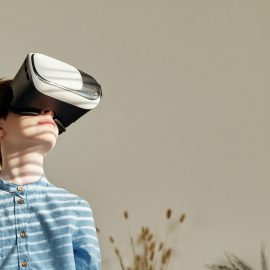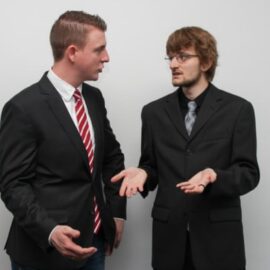
This is a free excerpt from one of Shortform’s Articles. We give you all the important information you need to know about current events and more.
Don't miss out on the whole story. Sign up for a free trial here .
What is the Anthropocene Epoch? How big of an impact have humans had on the planet?
We might soon officially be living in the Anthropocene Epoch, a period in Earth’s history in which human activity has changed the entire planet. It means we’ve affected the planet as much as the asteroid that killed the dinosaurs and as much as the repeated Ice Ages.
Keep reading to learn how new epochs are declared and why some think we shouldn’t call this epoch the Anthropocene.
What Is the Anthropocene Epoch?
Just like we divide a year into practical units such as days, weeks, and months, geologists break up Earth’s 4.5 billion-year history into smaller, more useful chunks. An epoch (pronounced like “epic”) is the second-smallest of those units: larger than an age, but smaller than a period. “Anthropocene” comes from the Greek “anthro,” meaning human. Therefore, the “Anthropocene Epoch” describes a period of Earth’s history that’s defined by human activity.
Human Impacts on the Planet
Currently, the most highly discussed impact that humans have on Earth is climate change: the rapid warming of Earth’s atmosphere due to greenhouse gasses. Aside from causing deadly heat waves in many parts of the world, climate change is creating some of the worst droughts in recorded history, as well as causing tropical storms to be unusually intense and frequent.
Humans have also had devastating impacts on Earth’s wildlife, so much so that some experts say we’re on the cusp of the sixth mass extinction. A mass extinction event is defined as 75% of Earth’s species going extinct within a relatively short time—while we haven’t reached that threshold yet, scientists estimate that we could cross it in just a few hundred years. Humans are driving these extinctions in several ways:
- Overusing natural resources.
- Spreading diseases and invasive species through trade and travel.
- Making natural habitats uninhabitable due to pollution.
- Fueling climate change, as discussed above.
For context, the previous five mass extinctions were caused by cataclysmic events such as massive volcanic eruptions and the asteroid that wiped out the dinosaurs.
Who Decides This, and How?
The Anthropocene Working Group (AWG) is a research team of experts in fields ranging from geology and geography to international law. For the last three years, this group has been working to determine whether there are grounds to say we’re living in a new epoch—and, if so, when that epoch started.
Based on their findings, the AWG has proposed that the Anthropocene actually began in the early 1950s. The deposits from that time period have large amounts of carbon from burning fossil fuels, as well as radioactive particles from nuclear weapons testing. In other words, that’s when humans began having a noticeable impact on the Earth’s composition.
Before it can become official, this proposal must pass through the AWG’s parent group, the International Commission on Stratigraphy. If approved, it will then be presented at the 2024 International Geological Congress to be ratified by the larger scientific community.
Arguments Against the Anthropocene Epoch
Not everyone is on board with the idea of naming a geologic epoch after ourselves. Some scientists argue that Homo sapiens—our species, which has existed for less than a million years—is barely a blip on the immensely long timeline of Earth’s history.
Others say, according to the terminology that geologists themselves created, human civilization should be considered an event, not an epoch. Although we’re having an enormous effect on the planet right now, everything humans have made will get buried or decay to nothing shortly after we’re gone; our creations will survive for mere thousands of years, whereas geologic time is usually measured in millions of years. In other words, they argue the changes that humans have made to the Earth won’t last long enough to qualify as an epoch.
Still other scientists agree that we’re living in the Anthropocene, but disagree about when it started. Some place the start of the Anthropocene Epoch in the late 1700s, at the dawn of the Industrial Revolution. Others say it began much earlier than that, when humans started practicing agriculture around 12,000 years ago.
Although scientists have debated the idea of an Anthropocene Epoch for quite some time, for now we’re officially still living in the Holocene Epoch. That will continue to be the case until (and unless) next year’s conference ratifies the AWG’s proposal.

Want to fast-track your learning? With Shortform, you’ll gain insights you won't find anywhere else .
Here's what you’ll get when you sign up for Shortform :
- Complicated ideas explained in simple and concise ways
- Smart analysis that connects what you’re reading to other key concepts
- Writing with zero fluff because we know how important your time is






